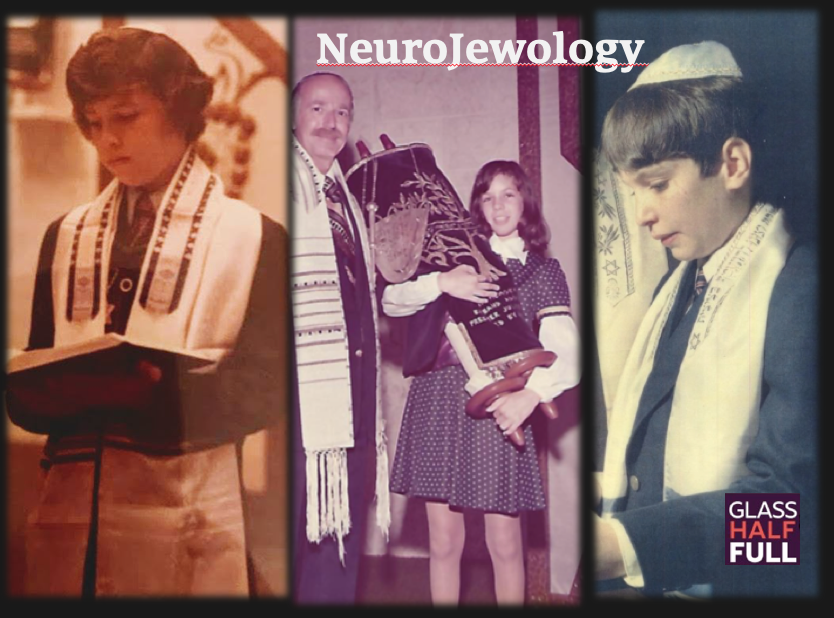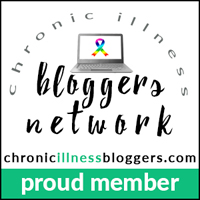Two friends from grade school share their stories of a diagnosis of a neurological condition. Marc has Multiple Sclerosis and Steve has Parkinson’s disease. I have a form of muscular dystrophy called myotonic dystrophy. It’s purely coincidental we all went to the same synagogue; there is no correlation between being Jewish and having a neurological condition.
Both Marc and Steve maintain positive attitudes. Marc has educated himself thoroughly about MS. Steve has tried different exercise programs customized for people with Parkinson’s and now facilitates a support group.
Steve has a travel planning business; you can visit his website.
Transcript
welcome to glass half full with leslie krongold she shares her stories experiences and knowledge of living and coping with a chronic health condition learn about tools and resources and hear inspirational interviews that help you to live a life filled with quality and dignity with two decades of support group leadership leslie’s ready to help you make lemonade out of life’s lemons are you ready are you ready hello and welcome to the next to last episode for 2019. i’m planning to get the last episode out in just a few days before i head out on my holiday road trip
so this episode has an unusual title neuro zoology which i will explain to you my two guests are both guys i knew from high school actually i think we met in middle school in south florida the first one is mark and the second guest is steve in the in the past few years each of them told me about their neurological conditions i think it was probably through facebook and mark has multiple sclerosis and steve has parkinson’s disease and each one asked me to maintain their privacy until recently they knew i was interviewing them for this podcast episode i i wasn’t spying on them i promise so we all grew up in south florida went to the same middle and senior high schools and developed neurological conditions in our adulthood and we actually all went to the same synagogue at first i was going to call the episode neuro jews sounds like you know super heroes and then steve suggested neuro duology and i kind of like the sound of that so there was absolutely no known correlation between being jewish and having a neurological condition you know that right okay we’re we’re just having a little pun fun my first conversation is with mark who still lives in florida and steve now lives in new york anyhow so mark no longer works full time i believe he and his wife have three children though i think they’re more like teenagers and young adults i haven’t i haven’t seen mark in many many years but our high school reunion is next year so i hope to see him i asked mark how he discovered he has ms so i woke up one morning i woke up one morning and the part below my knees and the part uh this the part below my elbows were numb and the numbness was like you know if you sort of lean on a place too long and your hand arm goes to sleep and you have to shake it out and or you lean on something like you sit on your leg and it goes numb and you sort of like have to shake it out to get going well i woke up that way and i was like that’s kind of weird and it didn’t go away and so i think it might have been a friday on monday i went in to see a neurologist that a neurologist said there are a couple of ways to confirm whether you have ms ms is can be confirmed by basically doing taking fluids out of your spine and doing a test or like the name sounds you have more than one episode on more than one date so he did an mri i had active lesions at the time a demolition of uh the tissue and it looked like i had had a couple of points that in the past had been uh part of it he said it’s probably ms but until we see another active lesion or a next episode we can’t absolutely say ms and he says at this time we’re gonna just go ahead and not put you on the medication well uh i’m gonna say within a month i had another lesion did another mri and uh they confirmed that i had ms so it really just started with my below my knees and below my arms not being able to feel see you were scared no it scared the wrong word for it i was concerned something else was going on something was going on and i’m reasonable and when i always tell people just act as a reasonable person will and if a reasonable progression is to go see a doctor about what’s going on that’s what you do and i talked over with my wife and she’s like yeah i think the right doctor is a neurologist and that’s where i went so i mean if you wake up one morning and you can’t feel your arms you say well you know maybe i’ll wait a day maybe whatever i did or you know pitch nerve or whatever it’ll go away now in the ms world uh if something is happening for more than two days on the third day they want you to seek uh attention usually that’s in the form of depending on your doctor a steroid drip and an ib to stop or lessen the impact of the demonetization so i luckily had gone and had sought early treatment because it did stop that in its tracks well floated enough so that there was no more damage and then um it’s all about how much of the feeling returns when the episode ends so that’s how it started uh and that was 2006. so had you ever had you known uh family or friends with ms before your diagnosis no i was the first person i knew that had ms i don’t even remember hearing rumors about other people but of course once you have it you start to hear more and more but no i was the first person i knew who had it i remember thinking that you know this is 2006. so i remember thinking that i don’t want to make things worse and so i struggled a little bit with whether or not since it happened while i was sleeping whether or not the way i was sleeping was causing anything of course i was naive at the time and so other than trying to do the right things i didn’t really freak out to be honest with you what i all i did was i went to the websites and i read as much as i could read about all the medications read about all the treatments read about what a diagnosis is um i got myself educated and i’m way more educated than most people on it right now and in that first month i would say i read hundreds of pages on ms like literally hundreds well huh did you uh when did you decide to tell your children well it’s the weird thing is i tell my kids everything i mean they know absolutely everything i’m pretty sure i told them that first year but not just right away i’m going to say i probably told them by the end of 2006 but i don’t think i did exactly right away um no i take that back we had a trip planned in august and this happened in early early june and i remember telling them in august and saying to them that nobody else knows because we’re going to a family wedding nice and talk to them and say hey this is private don’t say anything about you know anything that’s going on with regards to that and so i talked to them about it then so i’m gonna say i waited probably just two months so i’m not sure when you and i connected and and you told me i feel like it was maybe three or so years ago but maybe it was more or maybe it was just about three years ago but i know that you asked me not yeah you asked me not to tell anyone or i i didn’t of course i wondered like what’s changed for you since then because obviously you you’re doing this podcast you know uh interview so something changed i’m not sure you know that life isn’t just about an evolution of growth and change and changing your perceptions on things and i think one of the things that’s changed for me in that time frame is i have way different outlooks on the way you should live your life the way that you should go forward in other people and i think that ultimately i decided that i wasn’t going to hide it but i wasn’t going to flaunt it and so i thought you know what you asked me once i’ll circle back to it it had been in the back of my mind anyway for when you first asked i was just hesitant at the time because uh quite honestly i figured that we probably know 300 of the same people you know something some absurd amount initial hesitancy and i think i’ve decided along the way that there’s probably enough people who do know that it’s probably not that much of an issue anymore to come out but i think the reason i overall never said things to people and i still don’t prime at a to a large extent leslie is because and maybe you can be reflective of this that the first thing out of people’s mouths are how you feeling i i i don’t live my life harping on how are you feeling answers um i’d rather just be perceived as you know uh yeah just being able to you know have a normal conversation instead of always harping back to you know a disease or or a symptom or something that’s pulling i just don’t i just don’t like harping on stuff like that i i tend to gravitate towards positive things and stay away from negative things um and it i just don’t feel comfortable talking about myself that way a lot of times so that’s probably one of the reasons that i was hesitant anyway all along have you been able to connect with others with ms perhaps younger folks or people you know newly diagnosed i guess it goes without saying in a way having read all about the stuff i’m very well educated on it and being very well educated on it sometimes when you talk with people who aren’t ms patients they don’t quite understand they have a perception of that i should be in a wheelchair that i shouldn’t be walking that i shouldn’t be doing this and everything like that and i’ll give you a little side story on that and then there’s the other side is that uh the people who are newly they just want to get educated so i tended not to really be in a lot of support groups or anything like that i’d let my neurologist know if he had some briefly that some of the people have expectations of what your physical symptoms and restraint should be and um i was carpooling with a another mother or kids to school last year and i said hey i’ve got to do an mri uh and something in like march or something and she said no problem i’ll get them at the end of the day today and then something in passing i mentioned like yeah just you know i had headaches today and stuff like that it’s sometimes it’s a side effect you know that you get and so she then heard me it’s like oh yeah that’s right you have ms her she decided that it was no longer safe for her daughter to be driven by me around you know i so you can’t change people’s perceptions sometimes because it never would get resolved i gave her every logical explanation i could but you know she was trying to say well what does it feel like early on i said you know i once heard somebody in adt say what their neuropathy felt like and i said it’s very similar the pains are very similar the issues are very similar but i don’t have neuropathy i have ms i don’t know in her head where it got all jumbled i don’t know how much it was a discussion at home with her husband but it just fell apart when she learned i had ms and i think that’s kind of ridiculous to be honest with you but everybody has their own neuroses let’s put it or bring their own issues to the table but i sort of think that’s ridiculous because people are people you know i asked mark if he’s tried any alternative modalities to relieve some of his symptoms early on i had trouble sleeping i don’t know whether or not because the numbness you know there’s a there’s a period of uh self-awareness and when you quiet down at night and it’s just you thinking and you’re not moving you can sort of feel that there is numbness and it doesn’t feel right you can you can sort of hyper focus and i could fall asleep with my arm under the pillow and it would get 10 times worse than being numb and uh those types of things and you just know you’re not yourself so first thing i did is i reached for um acupuncture and i went to acupuncture and i told myself so that worked for me my wife was like you should go to a chiropractor too i was like what for so i went to a chiropractor and he’s like you know if you give me 10 weeks i might be able to open up some of the uh things that are i don’t even know how he put it but it he made it sound like i’ll be able to open up the pathways of your nervous system by allowing your uh structure to be realigned correctly i was like wait i don’t think you quite understand the nerves aren’t there to be allowed to breathe so but i did give them a little bit of a try and of course it did nothing so what kind of advice if any do you have for someone newly diagnosed with ms well i think the first thing you do is you get yourself educated um obviously there are uh different what the medications are what the choices are and to find yourself a neurologist who will spend the time necessary to answer your questions instead of just push you out of the office because he has an appointment in five minutes so that would be my overnight you have time to learn everything you have time to make decisions just getting a new diagnosis doesn’t mean oh my god i have to change tomorrow or i have to do something in the next two weeks or this you don’t you just proceed as a reasonable person word if they tell you that you need to get an mri to go ahead and confirm what’s going on you schedule it you do it
when you look at somebody who has ms and given that i just said that the attack could be in so many different places that you have to sort of realize that there is a broader spectrum within the disease that doesn’t mean that somebody is necessarily going to live the stereotypical worst case lifestyle or is going to die and i think that having that sympathy towards other people because you’re gonna have to uh learn that others will have their own preconceived notion towards you will give you a little bit of a better aspect of what’s going on the other thing i’d almost pinpoint every lesion i’ve had and say man that was a during a period of time where i just was not under a lot of stress and so to me i think that if i was going to give advice keep things around you that are positive don’t surround yourself with negative reduce your stress that i’m talking to you today and that is something that helps you feel better about yourself and what you’re doing a midst of everything else that’s going on and i think that’s always a good thing when you can feel good about some other things that you do for your you know to for other people and you can feel good about yourself like yeah i’m fine man no worries i’m good and so i just think that that overall surrounding yourself with that positivity and that experience leads to better health and i don’t know i mean that might sound crazy to a lot of people but i just i just feel him and trying to stay positive and my kids have noticed the change as well in the last couple of years and um they’re like work as well anymore to just lose your temper but uh the second reason is because what good’s it gonna do right so steve as i mentioned lives in new york in fact i saw him just about two years ago on a trip to new york we had lunch and caught up it had been many years since we’d seen each other maybe since we graduated high school anyhow his work for most of his career was computer related and i know a few years ago his organization downsized and he decided to start a venture that he’s long been interested in travel planning so there’s a link to his website in the podcast notes so i know a few years ago uh you know you sort of personally came out to me as having been diagnosed and you didn’t want to talk about it but then i saw you a couple years ago and it seemed like you were talking more about it where are you at now with you know discussing your condition
um i don’t talk about it with too many people because some of the reactions i get to well well they don’t want to really seem like they’re just like the way they respond like oh that’s too bad and kind of blow it off they don’t realize that they could they could really be offensive but that happens a lot and i you know i’ll tell i’ll tell some closer people to me and you know i know they’re they’re they actually have feelings and care about each other so you know the the acquaintances i have on facebook they don’t they don’t really need need to know about medical conditions of each other can you tell me what led to your diagnosis of parkinson’s you know when did you have your first symptoms were you diagnosed with any other conditions and then you know gradually found out that wasn’t correct tell me tell me about that journey may not be in chronic chronological order i got diagnosed in 2012 with parkinson’s
my wife she sent me to my primary care doctor said you got to go to he goes no i’m usually wrong 100 chance it might be parkinson’s disease and you know i i know parkinson’s diseases i think michael j fox says i don’t know much more than that and i’m like really he goes yeah but i’m usually wrong about these things so i went to a neurologist a neurologist he tested me with a bunch of tests which don’t really tell you if you have parkinson’s or not but it rules out other illnesses but the true test is when you use a levodopa carbidopa if you react to that then that’s like yeah that’s then you have parkinson’s because it’s the treatment for it so i went back to my primary doctor and i said yeah did you you know did you really think it was 100 chance because no i knew exactly what it was i just want to freak you out i have a pretty good primary doctor it’s like i hear stories that people get a real run around like you have this illness you have bad illness and it’s like it could take years before they come up with parkinson’s and you know while they’re suffering and taking the wrong medications yeah what led up to that was i had non-motor symptoms there was a mood changes
obsessing over different things and this was going this was going on over several years before 2012. so you know this you can go year and like not get diagnosed for years like that’s weird i don’t you know you don’t really pay much attention it’s like i don’t smell things anymore i didn’t realize that
friends at work like my pals at work noticed there were some weird things going on but they didn’t really say anything because after i got on medication my boss made a comment hey steve’s back and i thought that was that was very weird and i you know i was talking to my wife about that and like it’s weird right my boss said steve’s back and she kind of she got it right away like you know the pers person with my my personality changes isn’t the person that she met and then all of a sudden he’s back like after after one day of being on the medication there’s also other symptoms like sleep problems i was acting out dreams like waving my own uh interesting one i lost like 10 10 15 20 pounds real fast and the guy running the department he’s like you lost a lot of weight steve and he pauses and he’s like i hope it’s all for good reasons it’s like he kind of got it too there was something weird going on but he didn’t say anything did you seek out any support groups because i know parkinson’s has a lot of different programs you know all the movement classes tell me some of the things you’ve tried and what has helped and what you you know found no use or or help from i went to several support groups and exercise programs when i mentioned the lack of initial lack of of initiative and apathy that’s that’s really a strong part of the young onset parkinson’s disease groups i’d go to the meetings and it was just me and the organizer then a month later i go to the meeting and me and the organizer and so so i’m like what’s what’s with the city of millions of people don’t they they must have they must have some people with young onset parkinson’s that want to go to a group or maybe they just don’t want to hear about it i’ve got an email address we all exchanged email addresses over a couple of months so i had a list of email addresses and i was like all of a sudden i feel like i’m the organizer of the group so i’m emailing people and i’m helping people out because i’ve been been diagnosed since 2012 this people that just got diagnosed a year a year and a half ago maybe just even a couple of months ago and they’re scared and they were like what’s going on i want to hear from somebody that’s not 90 years old you know what’s going on with you so i’m i’m actually unofficially running the young onset parkinson’s group for new york city and i’m looking for yeah and i’m looking for a new location to meet so i’m looking for like a meeting space up this way and i’m trying to get creative and not like go into a hospital environment so i’m looking for i’m looking for a meeting space at one of the museums i think that’d be really cool
and one guy showed up and me but we had conversation he was he was asking a lot of questions and i was i was happy to share my experiences and it was it was a great support group meeting it was two people it doesn’t doesn’t doesn’t take 30 people in a room to make a good meeting you know it’s like it’s not not the nothing asses in the seat it’s the quality of the people coming in so there is another guy he keeps emailing how many people were there how many people were there and i’m like you know it’s like what is there a cover charge ten dollars a person like it’s it’s all in the quality of your conversation
i was doing a weekly yoga class and i found one that was charging just like a free class in the community around here i was i tried i tried boxing dude it’s not that’s not a contact boxing like you put the gloves on you get a bag and that that really aggravated my my elbows so i don’t know what i was doing wrong but i’m willing to try that one again i did a or i’m still doing it there’s a dance class at juilliard dance class dance dance for parkinson’s is the group and they they hosted the free class and you just got to get evaluated and you go to the class every every week you you do a little you don’t do much dancing it’s like that’s like an extreme thing but you you move around you’re stretching out your muscles and getting out of your house and most most of all i do walking i could walk three four or five miles a day and it’s only because i’m getting lost and i’m looking for no that’s not true i’m just kidding no it’s like you know i’m fortunate to be in new york city where it’s a walking city and i live and live towards the north end of town and i’ll just i could walk easily two to three miles and just keep going down the streets or maybe if it’s a nice day i’ll walk through central park but i i like the city city walking better than the park walking park i like to sit in
so what kind of advice would you offer someone newly diagnosed don’t freak out whatever people tell you may or may not be true for you uh every every single person with parkinson’s has a different type of different type of progression and their symptoms are different some people shake like their hands are shaky they can’t pick up a glass of water without spilling it some some people don’t have any shaking and some people have internal shaking that’s that’s my main advice i went to a support group right after i got diagnosed and they had a guest speaker come in and she was like do any of you have dissed this and this and i was looking around and like nobody really responds well you’ll get it she was like the wicked witch of parkinson’s yeah she she ran a group in another city and she was just speaking in in our group especially like you know if you you don’t have anything nice to say to a group of people that just got diagnosed just don’t don’t say it yeah just shut up
i hope you’ve enjoyed meeting mark and steve i don’t believe they’re in touch with each other but i found it very interesting that their perspectives are similar if you have a comment about the episode i hope you’ll visit the glascefl website and share your comment below the podcast notes so stay tuned in a few days for the final podcast episode of the year and it’s all about
sleep thank you for listening to glass half full leslie invites you to leave a rating and review on itunes this helps spread the word to others dealing with chronic health issues for show notes updates and more visit the website glass half full dot online.online






While other episodes have made me appreciate my health, this one really has me counting my blessings and admiring Leslie for sharing her insights and experiences. We all have fears, we all have doubts, we all need to continue to move ahead. Hearing how others deal with their issues helps us understand ours.
Thanks so much…fellow Charger! 😉
The LRRK2 G2019S mutation is a major genetic determinant of Parkinson’s disease (PD) across the world that occurs at an elevated frequency in Ashkenazi Jews. https://www.ncbi.nlm.nih.gov/pubmed/19283415
Wow! I had no idea and I bet many of our listeners weren’t familiar with this study. Thanks for sharing it, Mark.